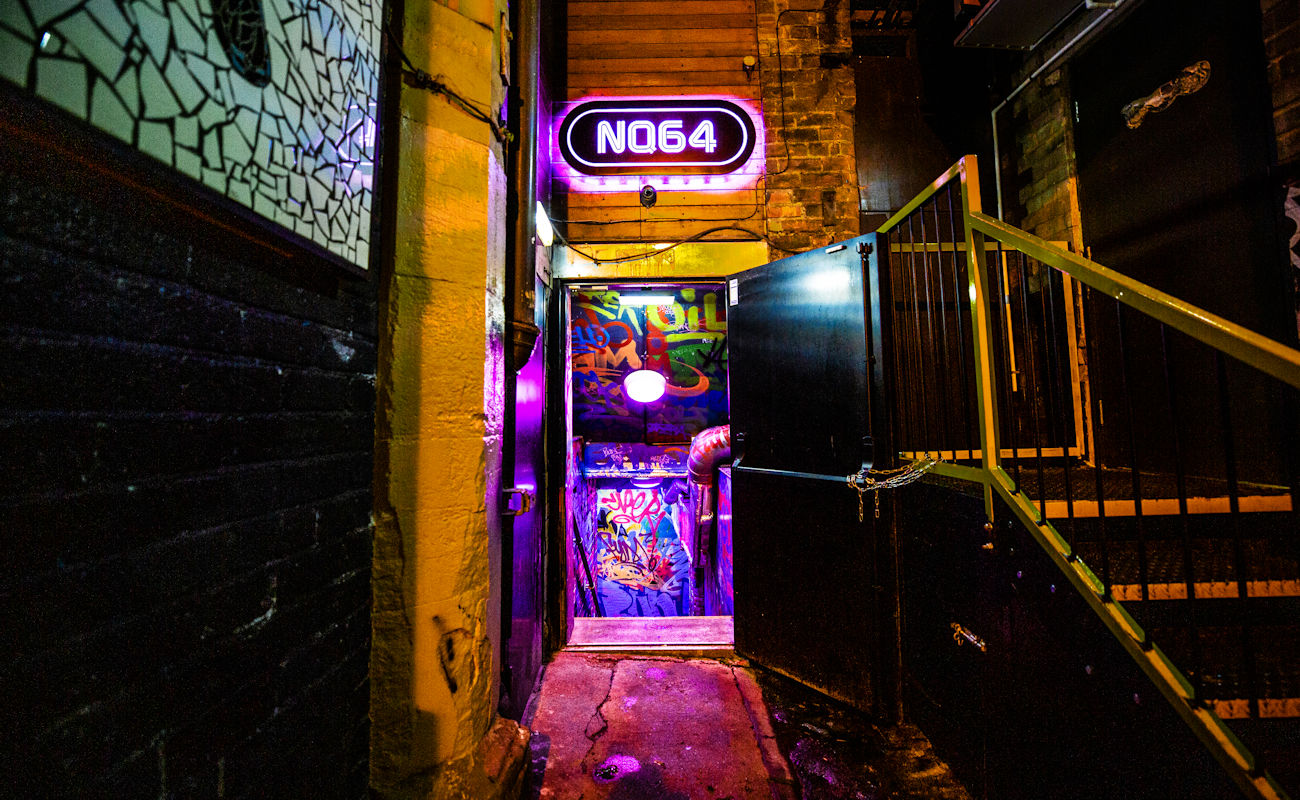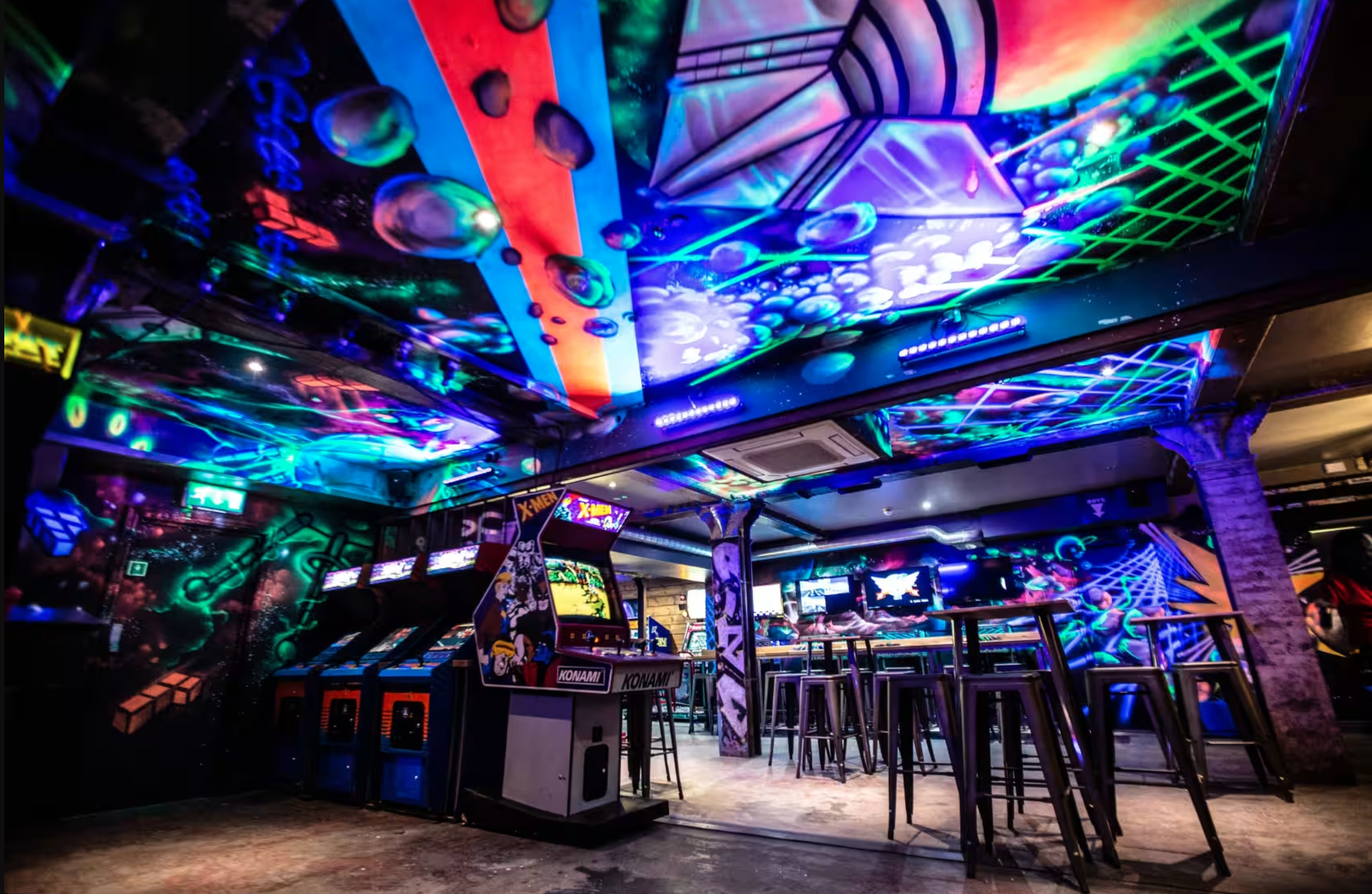Why Do the UK’s Innovative Experience Economy Producers Focus on the USA After Launching in London, Rather than Secondary Towns?
The UK’s experience economy is booming, driven by the rise of immersive entertainment, competitive socialising, and experiential art installations.
Pioneering producers such as Phantom Peak, Swingers, Secret Cinema, Punchdrunk, and Otherworld VR are redefining entertainment in innovative ways.
However, a pattern has emerged: these producers often prove their offerings in London, but when it comes to scaling, they frequently focus on expanding to the USA rather than moving into secondary towns across the UK.
The reasons behind this trend are multi-faceted, touching on economic, cultural, and logistical considerations.
In this article, we explore why this is happening, the challenges facing secondary towns, and what might be done to change it.
1. Larger Market Opportunities in the USA
One of the primary reasons UK experience economy producers look to the US after proving their concept in London is the sheer size and financial potential of the American market.
The US, with its larger population and higher disposable income in major cities, offers significantly more lucrative opportunities. Cities like New York, Los Angeles, and Las Vegas are known hubs for entertainment and tourism, making them ideal locations for large-scale experiential projects.
Moreover, the cultural landscape in the US, especially in cities like Las Vegas, is more accustomed to big-budget, immersive entertainment.
Shows like Meow Wolf in Santa Fe and Las Vegas have set a precedent for high-concept, experience-based attractions, which means that UK producers can enter a market already eager for innovative entertainment.
2. London’s Dominance in the UK’s Entertainment Landscape
London is the epicentre of the UK’s creative industries, home to a diverse, affluent audience with a penchant for new experiences. For many experience economy producers, London is the ideal testing ground due to its large population, international tourism, and existing cultural infrastructure.
After proving their model’s success in London, many producers find it difficult to replicate the same environment in other UK cities, where the same concentration of affluent audiences and infrastructure may not exist.
Secondary towns often struggle to match London’s critical mass of consumers who are willing and able to pay premium prices for experiential entertainment.
This creates a financial disincentive for producers to expand into smaller towns, especially when faced with the opportunity to scale in more profitable US markets.
3. Infrastructure and Audience Challenges in Secondary UK Towns
While there is undoubtedly demand for experiential entertainment outside of London, secondary towns in the UK face several challenges in attracting and sustaining large-scale immersive experiences.
For one, the infrastructure—both in terms of venues and transport—may not support the scale that many experience economy producers require.
Large, flexible venues are harder to come by in smaller towns, and even when they are available, they may lack the capacity to host long-running, immersive experiences at the necessary scale.
In addition, secondary towns often lack the consistent footfall of affluent tourists and residents willing to pay for these high-cost experiences.
Without a steady stream of customers, it can be difficult for producers to justify the significant upfront investment required for immersive shows and experiences, making expansion within the UK less appealing than the US.
4. Risk Aversion and Proven Success in the USA
Expanding into secondary UK towns represents a significant financial risk for many producers. These towns typically have lower levels of disposable income compared to London or US cities, meaning the potential returns may not justify the investment.
By contrast, US cities like New York, Las Vegas, and Los Angeles not only have higher average incomes but also a well-established culture of paying for entertainment. Additionally, these cities have a proven track record for hosting large-scale experiential productions.
The success of US-based experiential ventures such as Meow Wolf, Sleep No More (a US adaptation of Punchdrunk’s immersive theatre concept), and The VOID has further solidified the appeal of the US market for UK producers.
Once a show has been successful in London, replicating it in US cities is often seen as the safest next step.
5. Tourism and Visibility in the US
The US’s larger and more diverse tourism industry is another reason UK experience producers shift their focus to the States. Las Vegas, for example, sees millions of tourists every year, all looking for unique entertainment options.
This ready-made audience of tourists actively seeking out new experiences provides UK producers with a significant opportunity to scale their offerings.
In contrast, the tourism industry in smaller UK towns is less developed, meaning fewer opportunities for the kind of constant high turnover that immersive experiences require to be financially viable.
In essence, the higher levels of international tourism in US cities make it easier for producers to attract a steady stream of visitors willing to spend on immersive experiences.
What Can Be Done to Stimulate Growth in UK Secondary Towns?
Public and Private Investment To entice experience economy producers to expand into secondary towns, more investment is needed from both the public and private sectors. Local councils can offer financial incentives, such as grants, tax breaks, or reduced rents, to help offset the costs of expanding into less-proven markets. Additionally, public-private partnerships could be formed to create or adapt flexible spaces suitable for immersive experiences.
Developing Cultural and Creative Infrastructure Local authorities and developers in secondary towns need to invest in cultural infrastructure, including multi-use venues that can accommodate a range of immersive experiences. Building these spaces and ensuring transport connectivity will be key to attracting experience producers.
Audience Development Towns must work on building a stronger cultural scene that fosters a local appetite for innovative experiences. This can be achieved through community-led events, festivals, and smaller pop-up immersive experiences that lay the groundwork for larger-scale productions. Cultivating a local creative scene will also help generate the kind of engagement that experience producers are looking for.
Marketing and Regional Branding Secondary towns need to improve their visibility and position themselves as destinations for immersive entertainment. Collaborative marketing campaigns at regional and national levels could help promote towns as cultural hotspots, attracting both tourists and local residents to these experiences.
Conclusion: Bridging the Gap Between London and the USA
While UK experience economy producers often choose the US over secondary towns due to larger markets, higher disposable incomes, and established infrastructure, there is no reason why this trend cannot change.
With targeted investment, improved infrastructure, and strong local engagement, secondary towns across the UK can position themselves as viable destinations for immersive entertainment, offering a compelling alternative to international expansion.
For now, however, the pull of the US remains strong—but with the right strategy, the UK’s experience economy could find fertile ground in more of its towns and cities.
Related Content

Impact Assessment: Phantom Peak, Canada Water
Phantom Peak, an immersive, open-world experience located in Surrey Quays, London, has played a role in revitalizing the local area by drawing increased foot traffic, boosting local spending, and contributing to the regeneration of underused spaces. The attraction’s innovative, interactive model has benefited local businesses, residents, and the broader economy.



